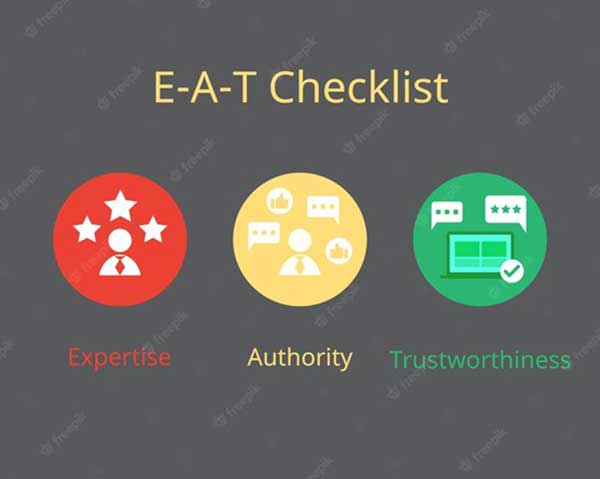
Expertise, authority and trustworthiness are the three pillars that Google uses to rank websites in its search engine results pages. If your website is serious about gaining visibility on search engines, it’s important to have a strategy for increasing your website’s authority, expertise and trustworthiness. These three attributes are commonly referred to collectively as “E-A-T” or “EAT” (or variations of those acronyms). While trust and authority can be challenging to measure directly, expertise is something we can all work on. To optimize your website for search engines you need to think about how you can prove to Google that your site has unique subject matter knowledge and isn’t just another hollowed out blog with no real authority. There are a number of things you should keep in mind when creating new content for your site or revising existing content.
Defining Expertise
Expertise is all about knowledge and skill. In SEO, we refer to the combination of these two elements as EAT (authority, expertise, trustworthiness). Before we can enhance the appeal of our website, we must first know what Google is looking for in an authoritative website. That means knowing what elements make up a site with high EAT. Google wants to know that your website is an authoritative resource on its topic because it doesn’t want to send users to sites that don’t know what they are talking about.
Some elements of expertise include:
Organizational structure – The site should have an organizational structure that makes it easy for the reader to navigate the content. – Content depth and breadth – The site should have enough content to be useful to most readers. The content should also be written in-depth enough to be useful to readers.
Author credentials – The site should have author bios that show the author has knowledge and experience in the topic. – How-to information – The site should include articles with step-by-step instructions. – Editorial calendar – The site should have an editorial calendar that shows regular updates by various authors.
Editorial staff – The site should have an editorial staff that shows a history of publishing content on a consistent basis.
Proving Authority
Authority is all about trust. When a person trusts your website, they are more likely to click through to your site. When they click through, they are more likely to purchase what you are selling. In short, authority is directly connected to your site’s click-through rate and conversion rate. Increased authority will also make it easier for you to rank for more competitive keywords. In short, authority is a critical part of any SEO strategy.
Some elements of authority include:
Website design – The website design should look professional, easy to navigate and have few distracting elements. – Domain authority – The domain authority of the website can be increased by having the proper backlinks, including your website’s sitemap on other websites, and by using keywords in your site’s name and subdomain.
Content length – The length of your content should be long enough to be useful to readers but short enough to avoid being too repetitive. A general rule of thumb is that posts should be longer than 500 words.
Social media presence – The website should have a strong social media presence to help build the site’s authority.
Editorial calendar – The site should have an editorial calendar that shows regular updates by various authors.
Increasing Trustworthiness
Trustworthiness is all about reliability. When people feel like they can rely on your website, they are more likely to click through to it. When they click through, they are more likely to purchase what you are selling. In short, trustworthiness is directly connected to your site’s click-through rate and conversion rate.
Increased trustworthiness will also make it easier for you to rank for more competitive keywords. In short, trustworthiness is a critical part of any SEO strategy.
Some elements of trustworthiness include:
Website security – The website should use HTTPS and have a valid SSL certificate.
Author biography – The author’s biography should be brief but detailed. It should include the author’s credentials and experience in the industry. –
Article length – The length of your articles should be long enough to be useful to readers but short enough to avoid being too repetitive. A general rule of thumb is that posts should be over 500 words long.
Editorial process – The site should have an editorial process that shows how the site publishes articles.
Summary
When you are creating new content, make sure it appeals to your readers’ emotions, offers actionable tips and has a strong call to action. You should also make sure your articles are long enough to be useful but short enough to avoid being repetitive. When you are revising existing content, make sure it still meets these standards. By keeping these three elements in mind as you create or revise content for your website, you will be well on your way to achieving greater authority, expertise and trustworthiness.
 Our company was established
in 2004.
Our company was established
in 2004.